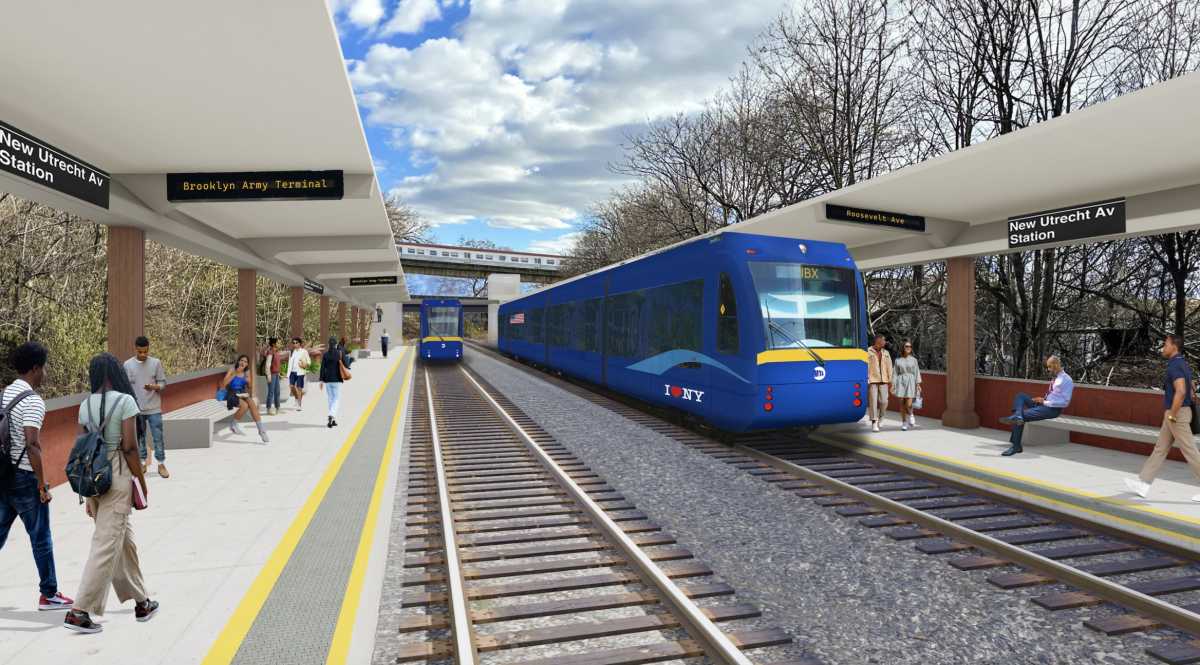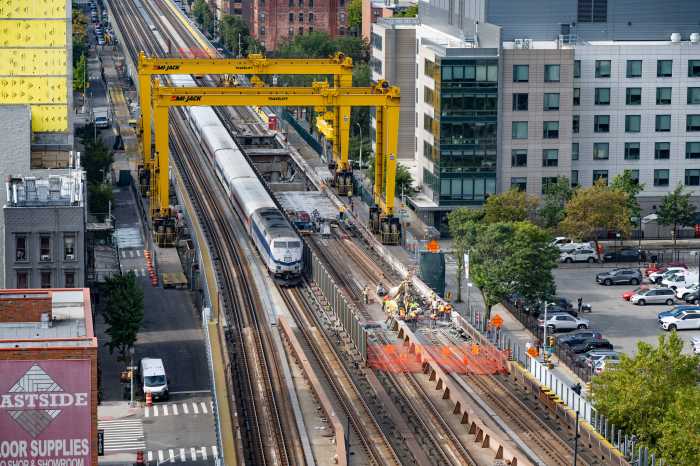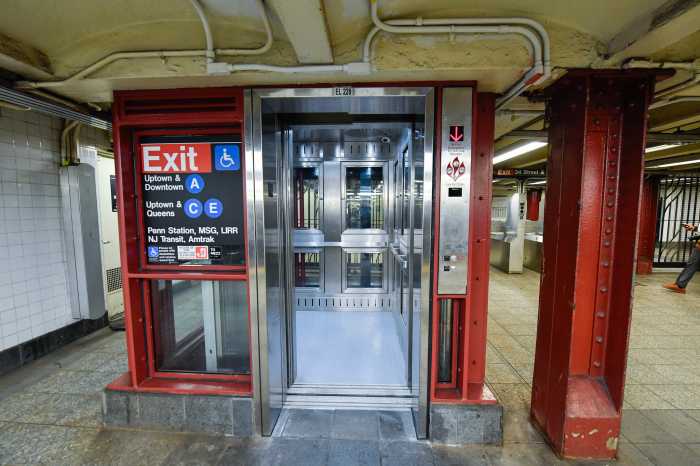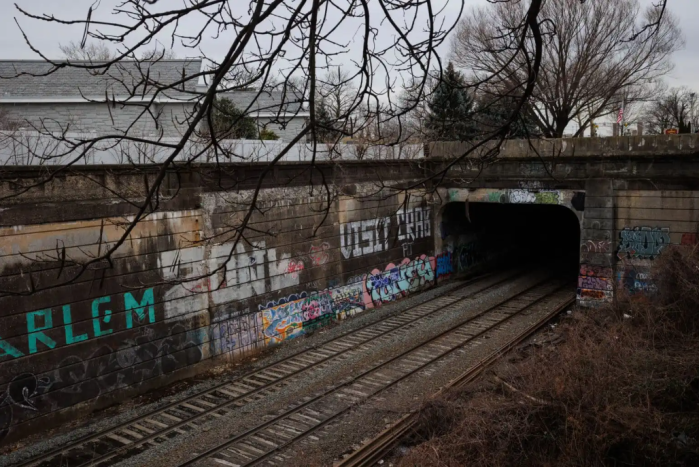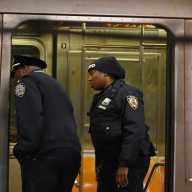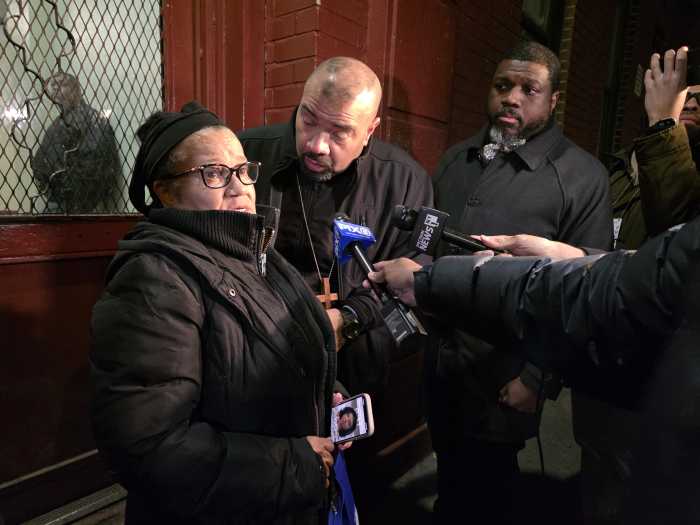Environmental reviews are about to begin for the Interborough Express (IBX), marking another significant milestone in the MTA’s construction of the light-rail project in Queens and Brooklyn.
Gov. Kathy Hochul and the state-run MTA said on Wednesday that the agency is beginning the environmental review process for the forthcoming IBX under the New York State Environmental Quality Review Act (SEQRA).
The review will begin with three public meetings at Brooklyn College on Oct. 29; Christ the King High School in Middle Village on Nov. 6; and a virtual meeting on Nov. 12.
Officials at the meetings will discuss the scope of the project and the review process. For more details on the meetings, including how to attend, visit mta.info/project/interborough-express.
Starting the environmental review marks the second major milestone reached for the IBX. It follows the MTA’s August announcement that the project had entered the preliminary engineering and design phase.
Both steps — the environmental review and design/engineering — will proceed concurrently, MTA officials said. Following public outreach, the SEQRA process will produce a Draft Scoping Document and, ultimately, a draft Environmental Impact Statement on the project.
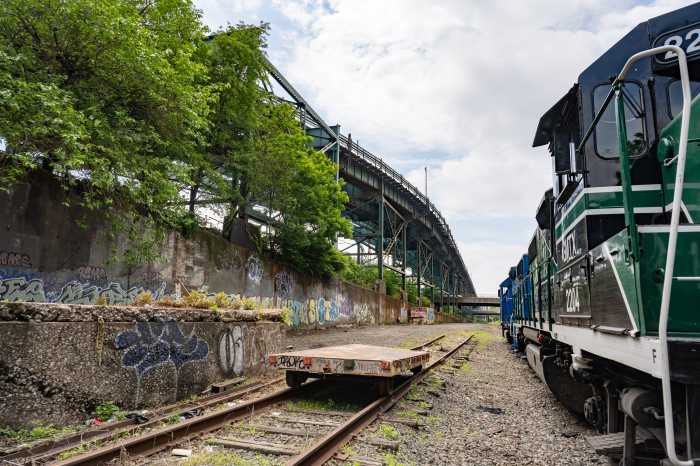
Hochul and MTA leadership have maintained that the 14-mile, 19-stop train will be a game-changer for Queens and Brooklyn residents, as it will connect the two boroughs directly without going through Manhattan. A total trip is expected to take around 32 minutes.
“The IBX will dramatically improve the commutes of over 160,000 daily riders, and we are moving full-speed ahead to keep this transformational project on track,” Hochul said. “Beginning environmental review is yet another statement of intent that in New York, we don’t just talk about major infrastructure projects, we build them.”
The MTA’s $68.4 billion 2025-2029 capital plan will pay for about 50% of the ambitious project’s estimated total cost of $5.5 billion.
“The IBX project will finally give Brooklyn and Queens the fast, reliable transit connection they deserve, and we’re ready to complete it faster, better, and cheaper,” Jamie Torres-Springer, the MTA’s construction and development president, said. “We look forward to putting shovels in the ground on this transformational project and sharing our ideas with customers.”
The MTA has described the IBX as a “generational transit investment” that will connect nearly 900,000 New Yorkers in underserved areas of Brooklyn and Queens to the subway, bus and Long Island Rail Road. The project is expected to reduce travel times between the two boroughs and will run along an existing 14-mile freight line owned by the MTA and CSX Corp.
The project has come with some mixed reactions from communities along its planned route. While many Brooklyn and Queens residents support the construction of a new train line, others have expressed concern that it could lead to displacement and gentrification, particularly in already vulnerable communities along the proposed route.
The MTA stated that it hosts a virtual community council on the project quarterly, bringing together elected officials, community groups, and community boards.



